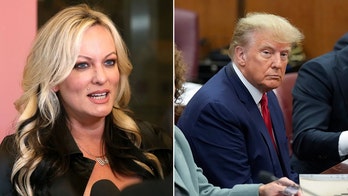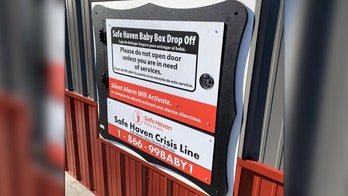The Treasury Department has launched an investigation into a now-defunct solar panel company's $528 million stimulus loan, focusing specifically on the federal bank that processed it.
The loan to Solyndra has set off a firestorm on Capitol Hill, with a Republican-led House committee releasing emails suggesting the White House had pressured budget officials into expediting their fiscal review of the loan ahead of a plant groundbreaking. The company was touted prominently by the Obama administration for its work growing so-called green jobs.
But the company went bankrupt this month and is now the target of investigations by the FBI and the Energy Department, as well the House Energy and Commerce Committee.
The Treasury Inspector General's Office said Wednesday night that it too, is investigating the loan, because it was processed by Federal Financing Bank, a government lending institution that falls under Treasury's control. The Treasury's investigation was first reported by ABC News, which quoted a spokesman as saying investigators would "look at everything the FFB had to do with its role in this thing."
Obama administration officials on Wednesday defended their support for the loan, claiming the firm fell victim to global economic trends but that federal investment in alternative energy must continue and the administration is moving to finalize as many as 15 loan guarantees for renewable energy companies before the stimulus program ends on Sept. 30.
The testimony came as Republican and Democratic lawmakers raised sharp questions about the decision that ultimately left taxpayers on the hook for millions, and as the newly released emails show administration officials were raising doubts about the loan proposal to Solyndra months before it was finalized.
Rep. Fred Upton, R-Mich., said the program was "shrouded in secrecy and uncertainty," questioning whether the loan represented "one bad bet" or the "tip of the iceberg."
Jeffrey Zients, deputy director of the White House budget office, acknowledged that Solyndra's bankruptcy will "limit the government's recovery of funds." He called the outcome "very unfortunate."
But at the hearing Wednesday, he said administration officials provided a "thorough examination and analysis" of the loan proposal and said a "challenging global solar market" has made business harder for companies like Solyndra.
Jonathan Silver, director of the Energy Department's energy loan office, also said a combination of factors -- namely China flooding the marketplace with cheap solar panels and the European buying market tightening as a result of their economic troubles -- has caused solar-cell prices to plummet.
"These changes were particularly damaging to Solyndra," he said.
Silver said Solyndra's projects were considered "advanced" dating back to 2008. "In 2009, Solyndra appeared to be well-positioned to compete and succeed in the global marketplace," Silver said.
But emails released by the House committee show that the relevant credit committee decided "not to engage in further discussions with Solyndra" in the final days of the Bush administration. After the change in administration, officials restarted the loan review process for Solyndra.
"A half a billion dollars that was not supported in January under the Bush administration was ... conditionally recommended in March," Rep. Joe Barton, R-Texas, pointed out.
Asked whether political influence played a role in the loan being approved, Silver said, "I don't believe so."
The emails at least show budget analysts felt rushed by the White House to review the loan guarantee in time for an announcement by Vice President Biden in September 2009.




